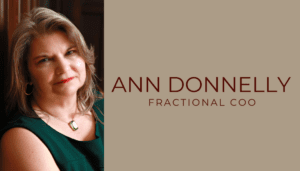Before you read this post, you may want to know my opinion on how to build a good business model. For a full account see my guest post on the Irish Internet Association blog Can an Ethical Online Business be a Successful Online Business? Here I pretty much say that developing solid long term relationships, providing value to your customers, is the best business model — and one that you can be proud of. I’ve never been a fan of online directories. I believe that many people that start up online directories do so because they see easy pickings amongst small businesses desperate to get more visitors to their websites, but I do realise that this isn’t the case for all online directories. Some genuinely believe they have a good idea and either go about it poorly or are out classed by the competition. Of course some, the vast minority, have a brilliant business idea that will help their customers as well as themselves.
General International Web Directories That Have Survived
Two international web directories that are still around from the earlier days of the Internet are Yahoo Directory and
The Open Directory Project. Both have been considered good links to have to help your Google results, but that may soon change.
– A few years back Yahoo started charging $299/year for new listings. I still recommend to new site owners to pay for one year to help get a jump start with search engine results, but the importance of the Directory for it’s own sake is waning and it’s value to Google may follow, especially as Yahoo has teamed up with Microsoft for it’s search results.
– The Open Directory was once considered a link builder’s best friend. Listings were easy to add and free and it feeds the Google Directory. A few years back it started taking ages to get a listing reviewed for inclusion and eventually it became known that, due to a lack of editors, some categories were not being reviewed at all, so many have given up submitting. Others have realised that if they volunteer to be an editor in their own category, they can keep the directory going and get their site included.
Other directories from those early days either no longer exist or are completely insignificant.
Irish General Web Directories
When I first moved to Ireland and started a web design business The Doras Directory was the main Irish online directory. It was good because 1) it was Irish when there wasn’t a lot of pure Irish content and 2)they reviewed each site and you’d get a rating in shamrocks you could note on your site. So what happened to Doras? At some point Eircom decided to start charging for submissions (some say that they threatened some sites to pay up or be delisted) and the overall quality of the directory went downhill and then eventually disappeared.
This has been the fate of most of the lesser online directories that have been put onto the Internet, so…
Why do people still keep starting up new online directories?
1) It’s a good project for an up and coming web designer, or as a marketing tool for an existing web development/online marketing company. If you don’t have a portfolio of sites, what do you show prospective clients? You come up with your own project ideas and online directories are a natural choice. When I first moved to Ireland I found it really difficult to find out when and where activities and events were going on so one of my first web design projects was a directory of events going on in West Cork: West Cork Week. It was hard work getting all the listings together and keeping them up to date. The natural progression was then to create West Cork Directory – listings of businesses in the area. The small amount that people in the area were willing to pay for advertising wouldn’t cover the time it would take to create and manage them, so I gave up on that idea. As I built up my list of clients, I had less time to keep up these sites and so added easy to manage Google AdWords to the site. It covers the cost to keep the sites going on a minimal level and as people are getting free listings I don’t feel guilty about having those GoogleAds or that I don’t have the time to update the sites more often.
2) There is a need for a directory to promote businesses and services in a specific region, industry or other marketing/networking group. Most tourism groups and business networks include a directory of members as part of their own websites. It provides value for their members and helpful information for visitors. In many cases inclusion in such a directory will be part of the membership fee.
3) The online directory offers potential to make a profit by charging for listings or advertising. Just after I quietly ‘launched’ West Cork Week in my home office, Dublin based web design company Webtrade decided to start up their Irish wide online communities in West Cork with West Cork Live. They had a big catered launch and our then local TD and Agriculture Minister Joe Walsh did the honours. They held meetings with business and tourism groups around West Cork and got a number of businesses to sign up for €100/year for a page on the site. (This pretty much made it impossible to get people to advertise on my site.) I don’t think the momentum of that web directory lasted more than a year or two. I did end up doing business with many of those advertisers in the following years and most of them felt that they were really let down by that experience.
The funny, or not so funny, thing is that nearly ten years later more web directories, with less going for them than West Cork Live, are starting up and people are paying even more than €100 for a listing.
10 Things to Consider Before Paying for an Online Directory Listing
1) Is the directory THE definitive directory for your region, industry, niche marketing (i.e. West Cork Tourism, Irish Internet Association, Slow Food Ireland, Wedding Directories)?
2) Is there a significant number of visitors to the website? Are there a good number of page views in the section of the site where your listing will appear? (Are the site statistics audited so that you can trust the numbers?)
3) Does the site come up well in searches on phrases related to your business/organisation?
3) Will your listing appear in a section of the site that is easy to get to from the homepage?
4) Will your listing include your contact details, including a link to your own website? Is the information laid out to naturally bring the visitor to contact you and not just trap them within the directory? Will the link add to the ‘authority’ of your site which may improve your site’s search engine results? (Read about Google’s PageRank) Some directories use a method of linking so that they can see how many clicks you get, but this may keep Google from passing the value of that link onto your site.
5) Is the site well designed, easy for the visitor to use and does it use current web technology (RSS feeds, user interaction, etc.)
6) Is the cost of the link justified based on the return you expect? If a directory charges €300/year and you make an average of €30 profit per sale, will you make 10 sales over a year?
7) Are there other similar directories that may be better established, higher ranking, better publicised or more cost effective?
8) Is this the best way to spend your marketing budget?
9) How is the directory being promoted (advertising on other sites, in newspapers magazines related to the region, industry, etc.)?
10) Is the directory being run by an established business that appears to be around for the long term? Are you comfortable with their sales and marketing practices?
Think about this listing within the big picture of your entire marketing plan.
– Don’t just try it out because they are the first to ask you, or you feel that you should help out someone starting up a new business.
– Look at what other marketing opportunities you have (online and off) and what free directory listings are available to you.
– Talk to people that are currently using the directory, or similar directories and see what the results have been like for them.
– Seek advice from others in the online marketing industry. There are a number of good, honest online marketing professionals providing such advice on our online networking channels (blog, Twitter, Facebook, LinkedIn, etc.).
If you run an online directory with paid listings, how does your site stand up to these questions? Are you truly providing value to the people that take listings in your directory, or are you just going to take their money and run?
The previous post on this blog; Link Building, more than just Link Exchanges and other posts under Link Building; will give you some alternatives to get more visitors to your website.


